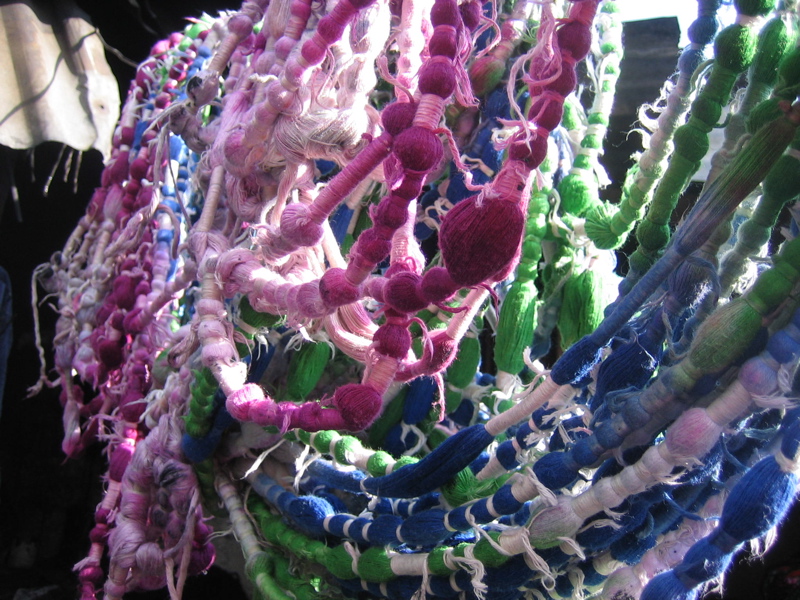October 16, 2006 - 00:49

 Well, I hit a wall this week with my Spanish: started Friday’s class with all sorts of approbation for the good stories I write, and ended it by failing an exam on the irregular pretérito. I’m used to a quick student, and a good student, so all the difficulties I’m having acquiring a new language @ my age and station have me pretty flummoxed—I feel like such a failure!
Well, I hit a wall this week with my Spanish: started Friday’s class with all sorts of approbation for the good stories I write, and ended it by failing an exam on the irregular pretérito. I’m used to a quick student, and a good student, so all the difficulties I’m having acquiring a new language @ my age and station have me pretty flummoxed—I feel like such a failure!Of course this experience has got me re-thinking what it means to be a student (and realizing in my gut just what it feels like to be not a good student/not to be able to perform as I’d like/as I think I’m expected to). I found some comfort tonight in the textbook I’m using--Dos Mundos--which makes a nice distinction between the subconscious process of language acquisition, and the conscious process of language learning. The design of the book is based on research showing that adults can acquire language subconsciously, as children do; that they acquire parts of language in a predictable order (that can’t be changed by deliberate teaching); and that the main function of conscious learning is as monitor or editor …
Practically, what this means is that formal knowledge of grammar doesn’t contribute to fluency; that we learn to understand before we learn to produce language; that it takes time for speech to emerge; and (most important for me) that we all make mistakes: “The willingness to accept approximations is absolutely essential to the process of language learning”; “you must guess @ meanings!” Language acquisition will only happen when we relax, and speak up—and it happens best in a community …
Shaye had asked how we might bring the new into our lives without disrupting what we want to keep, and suggested that one way of doing so might involve expending less energy on ensuring external security, recognizing that we all are—can be—internally secure. She was talking about the large population of the poor in Guatemala—What keeps them so poor? What old ways do they cling to, that prevent this from changing?—but her questions struck me as also describing my own situation, facing the new in this country that seems so much like the bottom of the world: how much am I clinging to what I know (for instance, this blog, as a way of staying in touch w/ those I know/who know me), and how much am I blocking, thereby, new ways of speaking and interacting in the world, with those who speak Spanish?

Comments
interesting
Submitted by Shaye (not verified) on October 17, 2006 - 21:23 Permalink